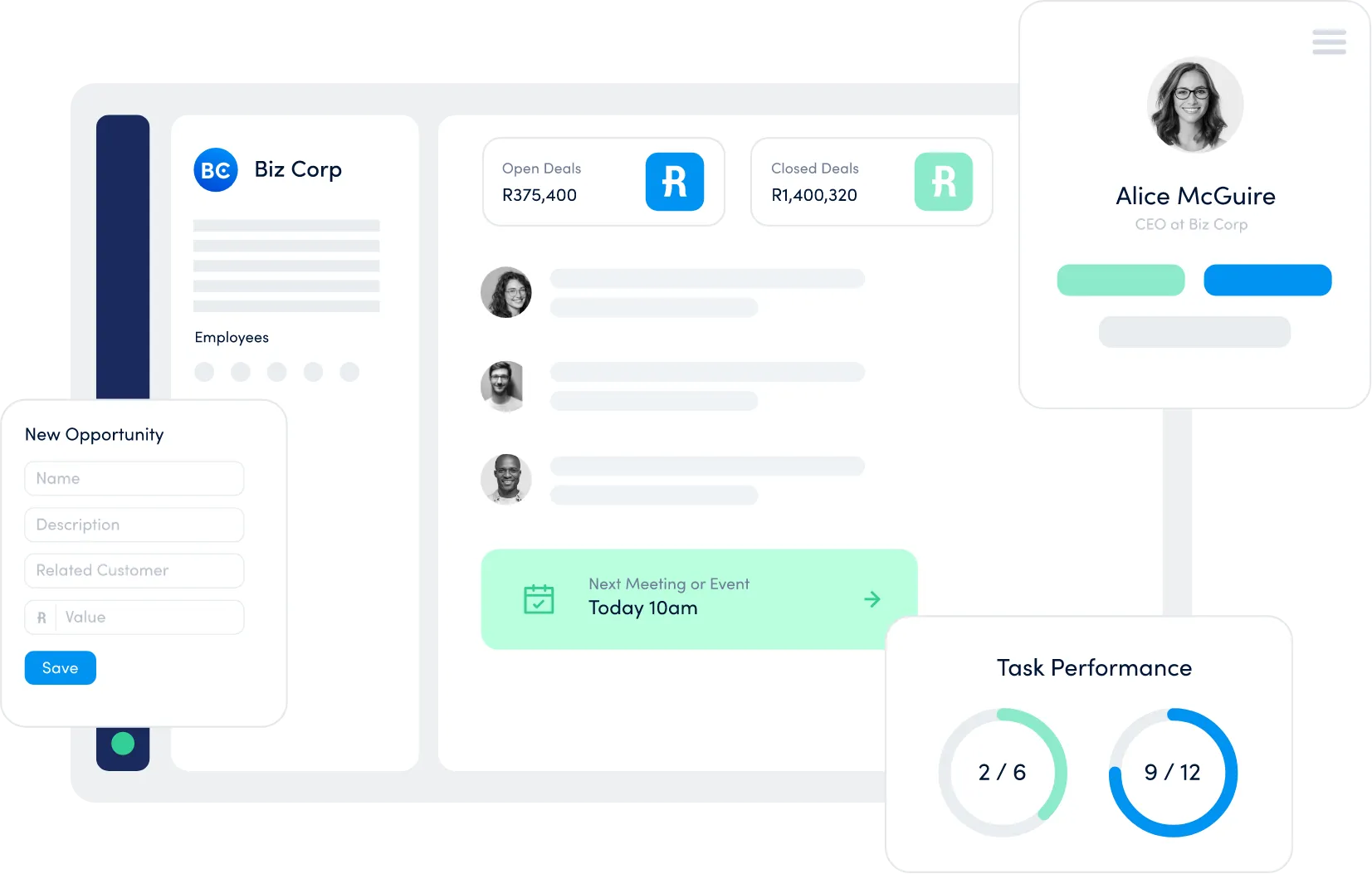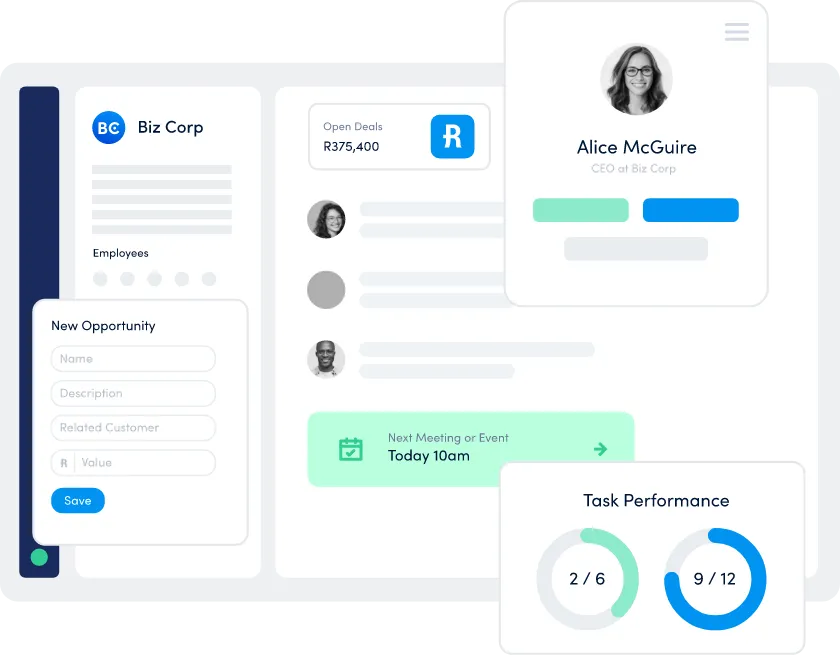

Organise, track and manage all your contacts in one place.
Securely store all your contacts.
Manage, store, label, add notes to leads, contacts, clients in a centralised online hub.
Get to know your clients intimately.
Monitor all client interactions, track client history, appointments, payments, invoices, documents, and conversations.
Take your business on the road.
Access everything about your business anytime, anywhere with a user-friendly mobile app.
Drive your team’s success.
Streamline teamwork and organise staff collaboration by assigning clients, appointments, and incoming requests.
Sell your services 24/7 from anywhere.
Client portal
Provide clients with a convenient self-service hub for scheduling, payments, document management and more.
Appointment reminders & confirmations
Reduce no-shows by 50% with automated reminders & rescheduling and spend less time on admin.
Custom follow-ups
Boost repeat business through post-meeting follow-ups and appointment booking invitations.
Drive leads, improve client satisfaction.
Convert website visitors into clients with a website widget that engages prospects and drive revenue with targeted email and SMS campaigns, and smart automated follow-ups.
Give your business the competitive edge.
All the tools you need to power your business - in one place.
FAQ
What is client management software?
Client management software is a powerful tool by which small businesses make a record and keep track of their clients and manage all aspects of their engagement with individual customers. In essence, this software goes beyond being a mere database of customer contacts, as it encompasses the entirety of the relationship between a small business and its customer and helps with the organisation of the records of all past and existing clients as part of a single platform.
To perform its function, client manager software often includes a set of tools and features that streamline the management of customer engagement, including the descriptions of individual services and products provided to a particular client, records of payments made in relation to provides services or products or payments due for them, a timeline of important events encompassing all interactions with a client, a reminder of one’s obligations in relation with a client, a support system for launching follow-up campaigns targeting past customers and creating leads out of new ones.
What to look for in a client management system?
There is a range of features that a client management system needs to offer to be considered as such. While these may vary, there is a common set of desirable functions that all customers should be on the lookout for. Still, trying to look beyond the sheer number of features and focusing on their potential to improve one’s business is a key consideration when acquiring a client management system.
A quality client management system is lean, fast, and impactful when it comes to improving the quality of business-customer relationships. It should support easy setup and configuration as well as fast collection and retrieval of customer-related information. This is done by offering a user-friendly workflow in the creation and maintenance of the database of current and past clients.
Next, it should include the system for the automation of marketing campaigns (including follow-up ones) via email and SMS, as well as the support for attracting new customers in the form of the lead generation functions. It should also help the users stay up-to-date on the incoming events relevant to their clients via an in-built calendar and client meeting scheduling feature.
Why do companies use CRM systems?
Companies use CRM systems for a variety of reasons, but they usually boil down to a desire to improve several key aspects of their business enterprise
First, companies use CRM systems to better organize and automate the customer relationship aspect of their business which has a great impact on its longevity and the bottom line. With the help of CRM, they get to create and launch marketing campaigns and analytical research directed at their customers. The data they gather is filtered and organized in a more insightful manner, allowing them to make better-informed decisions based on this vital information.
Also, CRM allows businesses to gather key information on the customers themselves based on creating a history of their interactions with them (purchases, participation in marketing campaigns, etc.) which, in turn, helps them create and offer improved and more profitable products and services. Targeting customers also becomes easier and allows for a more strategic approach to business planning. Finally, by having a collaborative CRM system, businesses can shorten the product development time and optimise their innovation management process.
CRM software also allows businesses to optimise various aspects of their day-to-day tasks, including the management of meetings with their clients, easier handling of payment and billing processes, streamlined support for customer acquisition and retention, etc.
Give your small business that big business vibe.